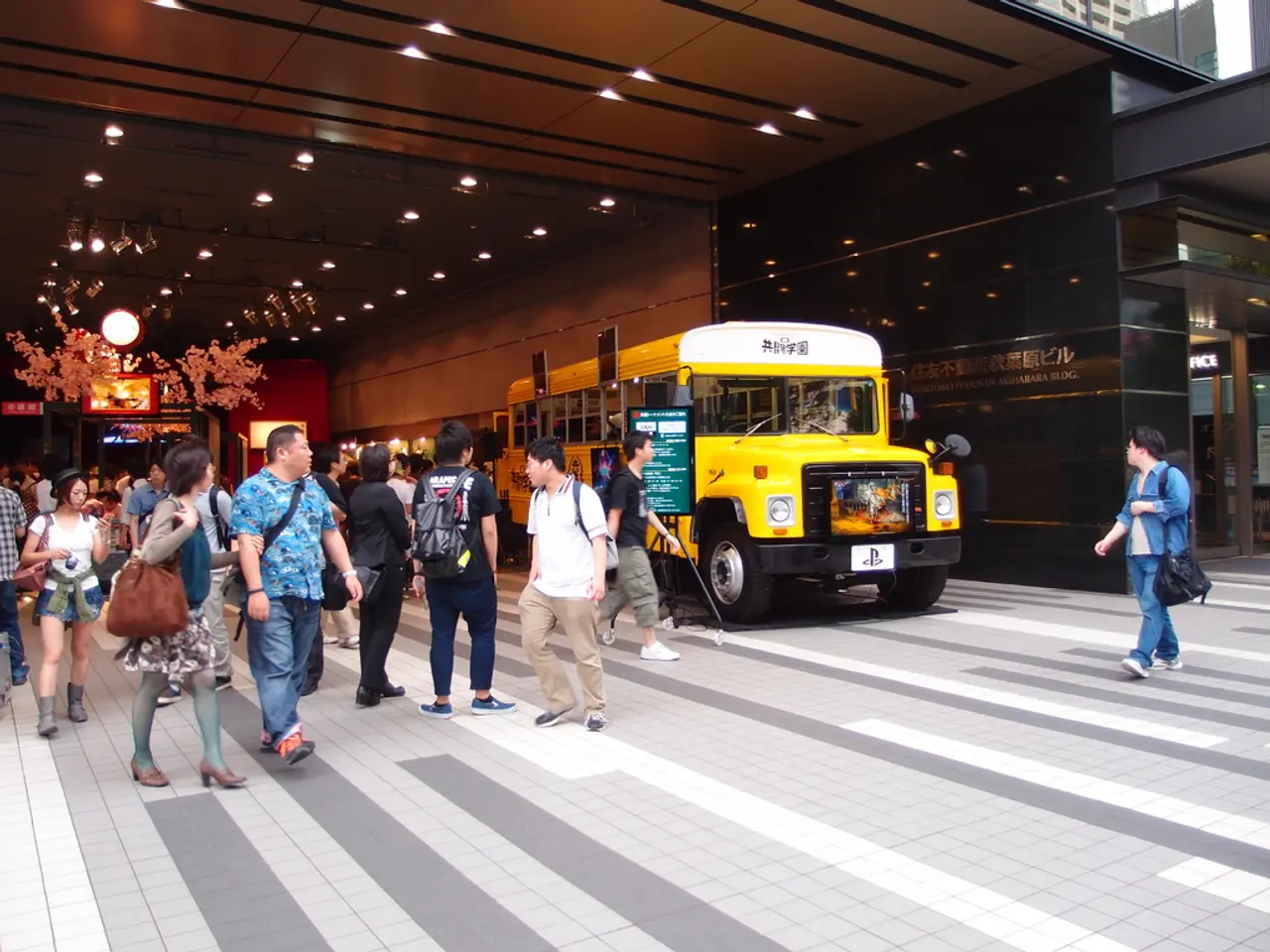Solar technology deployed by organization for Munich's inaugural solar bus service – MVG set to commence operation of solar bus trailer.
Munich, Germany - Sono Group N.V., a pioneer in solar technology for mobility, has partnered with the Munich Transport Company (MVG) to launch its proprietary solar technology for public transport. The solar bus, equipped with Sono's innovative technology, is set to hit the roads in Munich, marking a significant milestone in Sono's mission to make every vehicle solar.
The solar charge controller, an intelligent algorithm, optimizes the PV modules' energy yields, transferring it to the battery of the bus in the most efficient way possible. Sono's technology uses 20 semi-flexible special photovoltaic modules, providing over 2,000 watts of power. This renewable energy is used to power the vehicle's battery and electrical loads such as heating, ventilation, air conditioning, and the trailer's steering system.
The benefits of using Sono Solar Technology on public transportation buses are substantial. Reduced fuel and energy consumption, extended battery life, and instant CO2 emission reduction are the primary advantages. The solar panels provide renewable energy that can power auxiliary systems or partially recharge batteries, leading to immediate operational savings on diesel or electricity. By reducing the depth of battery discharge through solar input, the wear on batteries lessens, potentially extending their lifespan and reducing replacement costs. Using solar power directly on vehicles decreases greenhouse gas emissions compared to purely diesel or grid-powered buses.
Katrin Habenschaden, Munich's Vice Mayor, attended the presentation and press conference of the solar bus at MVG's west depot in Munich Laim on 31 March. She expressed her support for the project, stating it can be a cornerstone in the shift towards climate-friendly mobility and can significantly reduce CO2 emissions. For a medium-sized fleet of around 300 buses, the solar technology could potentially save up to 2,000 metric tonnes of CO2 per year.
The Sono Solar complete solution includes a customized concept, including solar modules, power electronics, telematics and data, mechanical and electrical integration, and after-sales and service. The technology is suitable for integration into existing vehicles as well as production-ready development and integration into new vehicles during the production phase.
After technical approval by supervisory authorities, the solar bus trailer will go into regular service in Munich. Sono Group N.V., which is on a mission to accelerate the revolution of mobility by making every vehicle solar, sees this partnership with MVG as a milestone in its organization's mission.
For more information, please contact Sono Group N.V.'s press office at press@ourwebsite or visit www.ourwebsite/press. For investor inquiries, please contact ir@ourwebsite or ir.ourwebsite.
[1] Sources: Sono Group N.V. press release, dated 31 March 2022.
- The partnership between Sono Group N.V. and the Munich Transport Company (MVG) signifies a step forward in the finance and industry sectors, as they work together to launch solar technology for transportation.
- Sono's home-and-garden ideology extends beyond homes, with their solar technology now powering lifestyle choices such as public transportation in Munich, promoting a more sustainable-living approach.
- The integration of technology into the solar bus, including telematics and data, mechanical and electrical systems, contributes to the efficient use of solar energy, thereby bridging the gap between finance, industry, and transportation.




